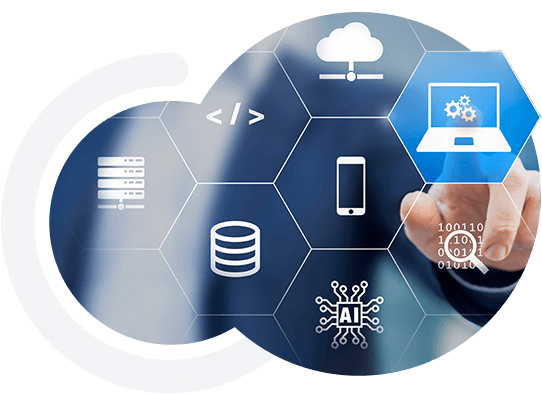

Overview
ERP stands for Enterprise resource planning and it refers to the systems and software packages required to manage day-to-day business activities. The activities may range from accounting, project management, procurement, supply chain management, risk management etc. An integrated ERP suite facilitates information flow between all business functions and manages connections to even outside stakeholders. It can also include software that helps plan the budget, predict and report the financial budgets and more.
Many ERP software help businesses by integrating all the process within a single system thus implementing resource planning and easy accessibility. One can consider it like glue that binds together different elements of an organisation. Without which, each department will have its own system which will eventually lead to multiple systems to handle. A proper ERP training consists of understanding and right implementation of ERP system. Further, an ERP training imparts knowledge about maintenance.

ERP Modules
ERP acts a centralized application through which the organisation manages and runs various processes and functions. Though the systems or the software can be customized as per the requirement of the respective organisation, there are certain common and basic modules of ERP which are found in any ERP system.
All the below-mentioned modules can be found in an ERP system:
- Human Resource
- Inventory
- Sales & Marketing
- Purchase
- Finance & Accounting
- Customer Relationship Management(CRM)
- Engineering/ Production
- Supply Chain Management (SCM)

ERP clients

Empower your business with 4C
Implementing ERP typically requires changes in existing business processes. Poor understanding of needed process changes prior to starting implementation is a main reason for project failure. The difficulties could be related to the system, business process, infrastructure, training, or lack of motivation.
- 4C teams reach experience in simplifying business process which will help to establish, implement and maintain business process for seamless implementation of ERP Software.
- All business processes will be thoroughly analyse before implementation of ERP software and ERP training.
- Analysis will identify opportunities for process improvement and simplification. This also enables an assessment of the alignment of current processes with those provided by the ERP system.
Risk of process mismatch will be decreased by:
- Linking current processes to the organization's strategy
- Analyzing the effectiveness of each process
- Understanding existing automated solution












